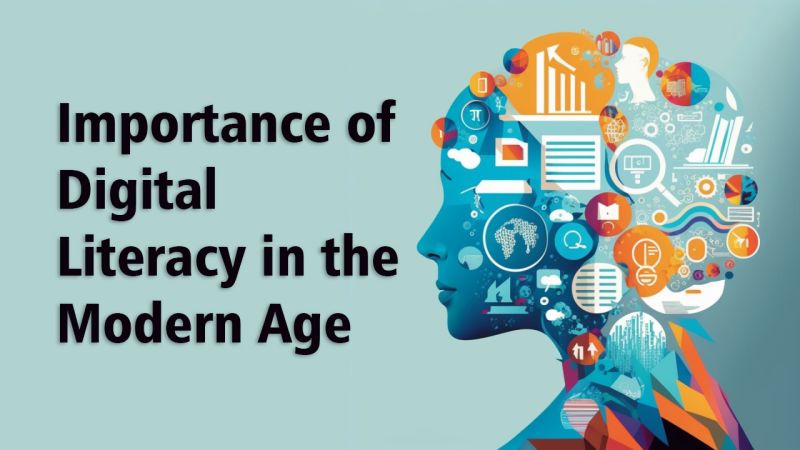
In today’s fast-paced, technology-driven world, digital literacy has become as essential as reading and writing. As technology continues to evolve, the ability to use digital tools effectively is no longer a luxury but a necessity. From using smartphones and computers to navigating the internet and online platforms, digital literacy enables individuals to participate fully in modern society. In this blog, we will explore why learning digital literacy is crucial in the modern age and how it can open doors to new opportunities.
What is Digital Literacy?
Digital literacy is the ability to use digital devices, such as computers, smartphones, and tablets, as well as the internet and software applications effectively and responsibly. It includes understanding how to access, evaluate, and create information online, staying safe on the internet, and using digital tools to solve problems or complete tasks.
In short, digital literacy equips individuals with the knowledge and skills needed to thrive in an increasingly digital world.
Why Digital Literacy is Important Today
1. Workplace Skills
In nearly every job today, digital literacy is essential. Whether you’re working in an office, a factory, or a remote setting, chances are you’ll need to use digital tools for communication, project management, data entry, or other tasks. Employers expect employees to be proficient in using computers, the internet, and software like email, spreadsheets, and word processors. Without basic digital skills, finding and keeping a job can be challenging.
2. Access to Information
The internet has become the go-to source for information on almost every topic. Whether you want to learn a new skill, research health information, or stay updated on current events, digital literacy allows you to access and evaluate the vast amounts of information available online. Being digitally literate means knowing how to search for reliable information, avoid misinformation, and critically assess the sources of data you come across.
3. Communication and Connectivity
The modern age has revolutionized the way we communicate. Email, social media, video conferencing, and messaging apps have become integral parts of our lives, enabling us to stay connected with friends, family, and colleagues, no matter where they are in the world. Digital literacy helps individuals use these tools effectively and responsibly, allowing for better personal and professional communication.
4. Education and Learning
The internet provides countless opportunities for learning. From online courses to educational videos and tutorials, anyone with an internet connection can access knowledge on almost any subject. Digital literacy empowers individuals to take advantage of these resources, helping them grow personally and professionally. Additionally, many educational institutions now offer digital learning platforms, making digital literacy essential for students at all levels.
5. Civic Participation
Digital literacy also plays a crucial role in civic participation. Many government services, voting processes, and community resources are now available online. Being digitally literate allows individuals to access public services, stay informed about social and political issues, and engage in online discussions or campaigns that shape the world around them.
6. Online Safety
With increased use of technology comes the need for online safety. Digital literacy teaches individuals how to protect their personal information, avoid online scams, and understand the basics of cybersecurity. This knowledge is vital in protecting oneself from threats like identity theft, phishing, and cyberbullying.
How to Improve Your Digital Literacy
Improving your digital literacy doesn’t have to be difficult. Here are a few tips:
- Take Online Courses: Many platforms offer free courses on basic digital skills, such as using Microsoft Office, navigating the internet, or learning coding languages.
- Practice Using Digital Tools: The more you use digital devices and software, the more comfortable you’ll become with them.
Stay Curious: Don’t be afraid to explore new technologies, apps, or digital platforms. Trying new things will help you adapt to the ever-changing digital landscape.
- Ask for Help: If you’re struggling with a digital task, don’t hesitate to ask friends, family, or colleagues for assistance. You can also find many helpful tutorials and forums online.
Conclusion
In the modern age, digital literacy is no longer an optional skill — it is essential. From securing employment and accessing information to staying connected and protecting your online presence, the ability to navigate the digital world is crucial for success. As technology continues to evolve, so will the importance of digital literacy, making it one of the most valuable skills a person can develop in the 21st century. By embracing digital literacy, individuals can open up a world of opportunities and thrive in a connected, digital society